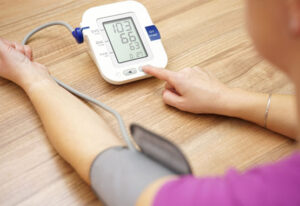These issues are best managed early in life as genetic factors and entrenched lifestyle issues become less amenable to change. This is where modern medicines come into play offering effective, safe, and well tolerated therapy.
- Call at: (07) 5578 6866
- Email us: info@cardiacdynamics.com.au
Blood Pressure
Blood Pressure: Frequently Asked Questions
Q: My blood pressure is 'terrible' on some days at the doctor's but 'all right' on others. How can this be?
A: It is difficult to measure something which can change in seconds. It should be measured through a strict protocol such as Automated Office BP ( AOBP ) , and, if doubt persists, through a 24-Hour Ambulatory BP Monitor (ABP ), which is the accepted standard to identify “White Coat Hypertension” (the pressure of merely having medical staff around!) A 24- Hour ABP may be somewhat inconvenient, but it is preferable to multiple, increasingly frustrating home or GP office readings.

Q: What causes high blood pressure?
A: Our blood pressure is meant to change according to demand -which is normal physiology. At the finish line of the Olympic 100m sprint, medals are awarded, rather than a trip to hospital! If blood pressure is persistently elevated when a person is at rest , the name “Essential Hypertension” implies that no specific cause is present. However there are some basic elements at work in this control:
Autonomic Nervous System -overactivity
Arterial Stiffness– our conducting arteries have a muscular tone which controls BP
Salt and Water Balance-determined by kidney function
At Cardiac Dynamics we aim to determine these control mechanisms and thus apply a logical approach to management.
Q: I feel well enough, so why is my blood pressure high?
A: High blood pressure usually occurs in the absence of symptoms. However hypertension is a major risk factor for stroke and heart disease – both of which are associated with plenty of symptoms. The aim is to identify the risk. This risk is best assessed using the Australian NHF Absolute Cardiovascular Risk Calculator, for example, and adding in other risk factors such as age, gender, cholesterol levels , smoking, and diabetes.
If this risk moves into the red zone, then one might have cause to feel somewhat stressed.
Q: I’m not a pill person. What is the alternative?
A: Lifestyle factors such as overweight, lack of exercise, and alcohol consumption should be addressed. Losing 5 % of body weight will generally lower BP by 10mm Hg.
Sleep apnoea is becoming increasingly recognised as an important cause of high blood pressure and may respond to use of devices such as CPAP.
